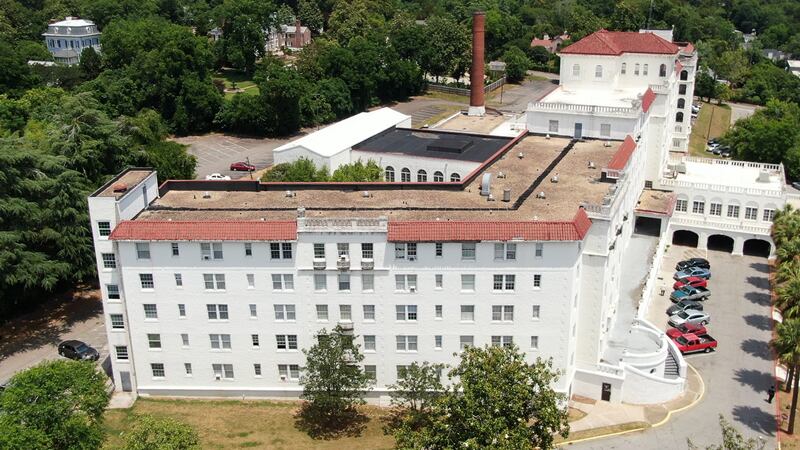‘All of them made it’: Quadruplets set world record being born 115 days premature
BIRMINGHAM, Ala. (WBRC/Gray News) - Quadruplets at UAB Hospital broke a world record when they were born last year.
Hospital staff say the Bryant quadruplets were born 115 days premature on May 31, 2024, and they became the Guinness World Records title holders for the most premature quadruplets, breaking the record set back in 1997.
“Hearing our babies were the most premature quads put into perspective how lucky we were that all of them made it,” their mother, Becca Bryant, said.
According to the hospital, 30 maternal-fetal and neonatology experts were called in for an emergency cesarean delivery of the quadruplets.
“When Lainey, Kali, Lennon and Koen were born, they were 115 days premature,” Bryant said. “Now, a year later, we were surrounded by family and friends to celebrate their first birthday.”

And it was a moment the babies’ parents said they were not sure they would be able to get to with everyone together.
UAB staff say multiple pregnancies are rare, with twins occurring in one in 80, and quadruplets occurring in one in 700,000.
Bryant had a trichorionic quadra-amniotic pregnancy, meaning there were four babies and four sacs, but only three placentas.
The Bryant quadruplets made their entry into the world on a Friday — Lainey at 2:15 a.m., Kali at 2:16 a.m., Lennon at 2:17 a.m. and Koen at 2:20 a.m.
The neonatology team rushed the babies to the Level IV UAB Regional Newborn Intensive Care Unit, where they started UAB Golden Week protocols.
“The highest risk of complications and mortality for extremely preterm babies occurs during their first week of life,” Dr. Colm Travers said. “The program focuses on minimizing complications in babies through that first critical week because it typically means a greater chance of survival and going home.”
UAB says babies born severely premature can face complications including severe brain bleeds, chronic lung disease, bowel injury, infections and sepsis. Each of the quadruplets required multiple forms of ventilation, medications and numerous central lines. They all experienced their own medical challenges.
“There were so many times we were so close to losing one of them,” Becca said. “But, I kept saying, ‘We came in with four, and we’re taking four home.’ We were going to do whatever it took to get there.”
Last November, the babies were all stable enough to be transferred down to the UAB Continuing Care Nursery, a milestone for RNICU babies. Shortly after, the Bryants received the wonderful news that the babies were ready to go home.
“In the span of a month, all four babies were discharged, right in time for Christmas,” Becca said. “It was surreal leaving a place that had become our second home and the staff who had become like family.”
A year later, Koen and Lainey still require a nasal cannula, and Lennon has a G tube to help supplement his feeding, but the quadruplets are happy 1-year-old babies, UAB staff said.
The family continues making trips to the UAB Newborn Follow-Up Clinic and Children’s of Alabama to ensure the quadruplets develop appropriately. Overall, they continue to hit milestones and defy the odds they were given at birth.
“I think it is a testament to the quality and kind of care that we can provide to these families at UAB,” Dr. Ayodeji Sanusi said. “It shows how well-trained and how closely we work with all specialties to make world records like this possible, even though that is not the intention going into it.”
Becca added, “We had our family and friends, as well as the UAB team, the whole way. Fighting for our babies, fighting for our family.”
Copyright 2025 WBRC via Gray Local Media, Inc. All rights reserved.















